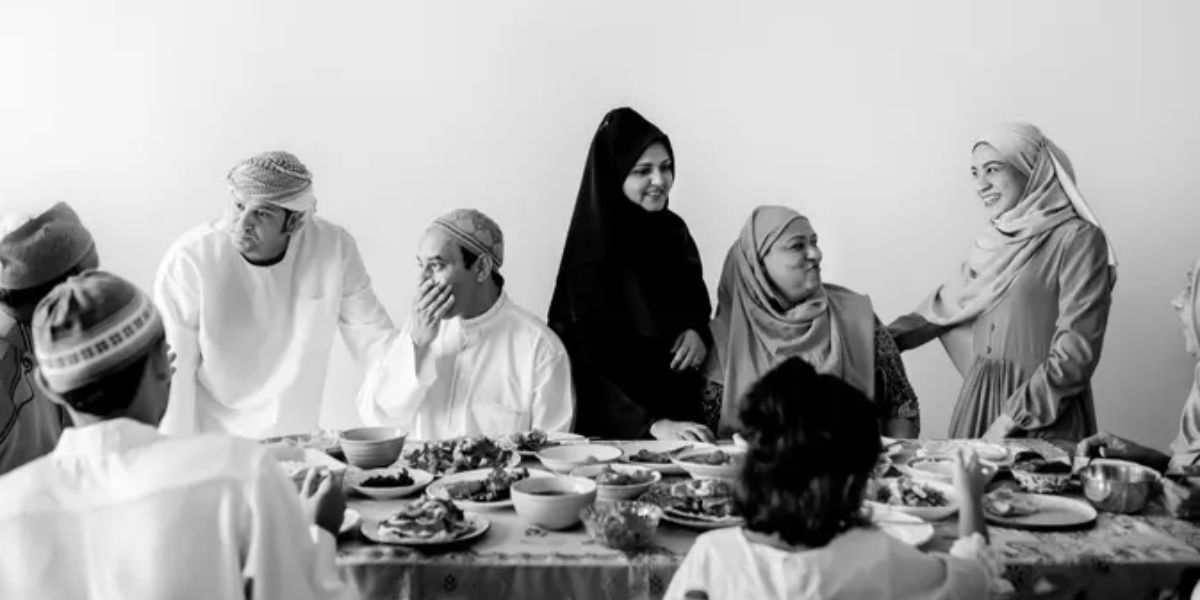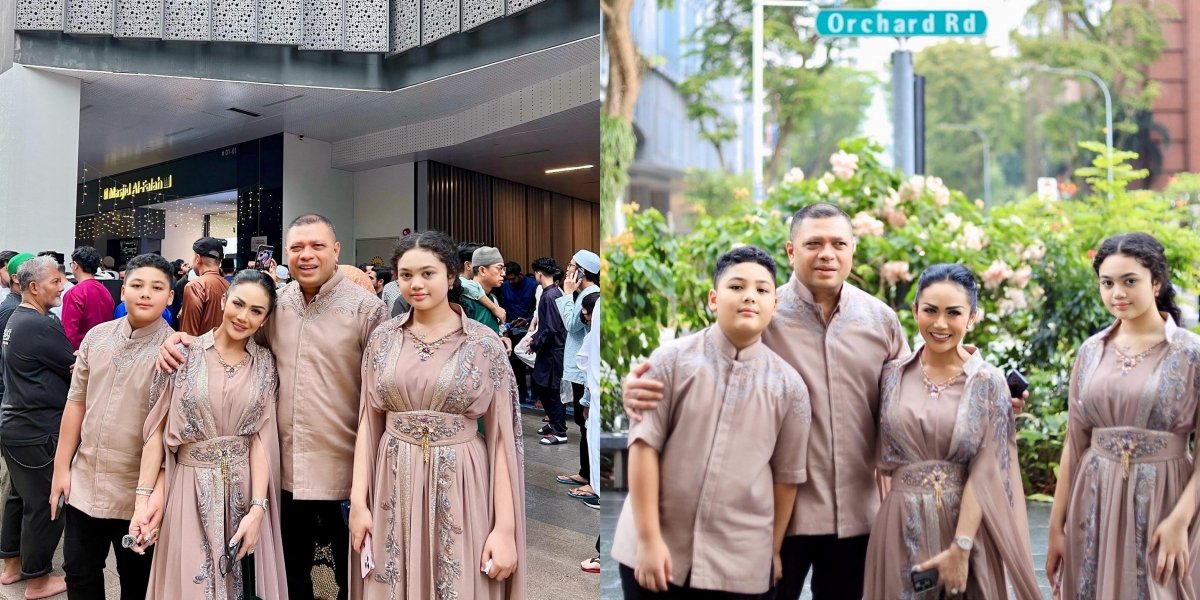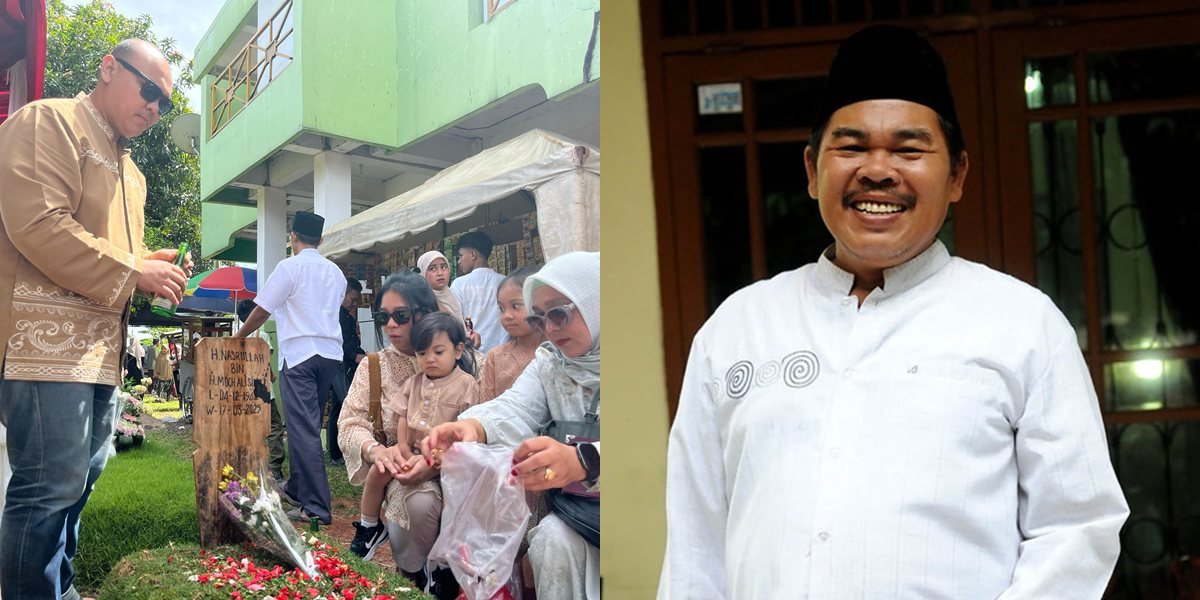Kapanlagi.com - Eid al-Fitr, a moment of victory after a month of fasting, is not just an ordinary celebration. Eid is a sacred time to return to our true nature and reflect on the meaning of life. This is the right time to improve human relationships and strengthen the bonds of brotherhood.
One of the core aspects of this celebration is silaturahmi, which serves as a bridge to reconnect family ties. The tradition of going home (mudik) in Indonesia is a real example of how important silaturahmi is for our society.
Every year, thousands of people are willing to travel long distances to gather with family and relatives, demonstrating the strength of togetherness celebrated in a warm atmosphere.
In Islam, severing silaturahmi is a major sin that carries serious consequences, both in this world and the hereafter. This article will thoroughly discuss the meaning of silaturahmi, its virtues, and the dangers that lurk if we decide to distance ourselves from good relationships with those closest to us.
Understanding the importance of maintaining silaturahmi is the key to living a more meaningful and blessed life. By being aware of the negative consequences of severing relationships, we will more appreciate and strive to maintain good relationships with family and relatives.
Let us delve into a thorough discussion about silaturahmi and how to utilize the Eid moment to strengthen those bonds. This article is presented by Kapanlagi.com from various sources, Tuesday (2/4/2025).
1. The Meaning and Virtue of Kinship in Islam
In Islamic teachings, kinship is not just a tradition, but a noble obligation that binds the ties of brotherhood, both with close family and the wider community.
This is emphasized in the words of Allah SWT in QS. An-Nisa verse 1, which reminds us to be pious and maintain kinship as a form of devotion to Him.
Meanwhile, QS. Ar-Ra'd verse 25 warns us of the fatal consequences for those who sever the bonds of brotherhood, who will receive a curse and a terrible place in the hereafter.
In addition, many hadiths of the Prophet Muhammad SAW highlight the importance of kinship, such as stating that maintaining these relationships can ease sustenance and prolong life, and is one of the signs of perfect faith.
Thus, kinship is not merely a social interaction, but a path to blessings and happiness in this world and the hereafter.
2. Eid as a Momentum to Strengthen Ties of Brotherhood
In Indonesia, the tradition of visiting during Eid has become a cultural heritage that is deeply intertwined in the lives of the people.
Every year, the moment of returning home becomes a magnet for many to go back to their hometowns, gather with extended family, and celebrate togetherness filled with warmth.
From visits to relatives to festive open houses, each region has its unique way of strengthening the bonds of brotherhood. Amid technological advancements, visiting has also adapted; video calls and digital messages now serve as bridges for those separated by distance.
Not to be missed, the tradition of "asking for forgiveness" during Eid holds deep meaning, providing an opportunity to forgive each other and cleanse the heart.
All of this contributes to better mental health, reduces stress, and creates a harmonious atmosphere within families and communities, making the moment of Eid a time full of meaning and joy.
3. The True Dimensions of Communication in Eid Silaturahmi
Eid Silaturahmi is more than just a physical visit; it is an emotional journey full of meaning.
In this precious moment, the quality of communication becomes key, where listening wholeheartedly and showing empathy is very important.
Values such as patience, forgiveness, and honesty flourish in this interaction, creating a bridge that connects different generations and cultures.
Through silaturahmi, we are invited to appreciate differences and understand others' perspectives, which in turn strengthens the bonds of unity and togetherness in society.
This is a golden opportunity to build stronger and more harmonious relationships, making every meeting a valuable and unforgettable moment.
4. The Dangers and Sins of Severing Silaturahmi
In QS. Muhammad verses 22-23, Allah SWT gives a stern warning about the dangers of severing silaturahmi, reminding us that such actions can lead to destruction on earth and damage familial relationships.
Those who do so are cursed by Allah, made deaf and blind by Him. The Prophet SAW also emphasized the threat to those who sever silaturahmi, with a saying that states they will never enter paradise (HR. Bukhari and Muslim).
The impact of this action is very detrimental, not only psychologically and socially—such as isolation that can affect mental health—but it can also create prolonged conflicts within families that negatively impact future generations.
Spiritually, severing silaturahmi brings darkness to the heart and removes blessings from our lives.
5. When Is Someone Considered to Have Cut Off Ties of Kinship?
The debate among scholars regarding the meaning of cutting off ties of kinship is indeed interesting to observe.
Imam Ibn Hajar al-Haitami argues that cutting off ties of kinship means stopping the good habits that are usually done with relatives without a reason that is in accordance with Islamic law.
On the other hand, there is a view that states that this action includes bad deeds towards relatives or a lack of kindness shown to them.
In general, some signs that indicate someone has cut off ties of kinship include ignoring relatives without reason, avoiding family gatherings without excuse, being indifferent to the difficulties faced by relatives, and refusing invitations or requests from them without an acceptable reason.
However, there are also certain conditions that can be understood, such as unresolved disputes or hurtful actions from relatives that can justify limitations in maintaining kinship ties.
6. How to Repair Damaged Relationships
Reviving a relationship that has been interrupted can start with simple steps, such as greeting warmly and establishing light communication.
It is important to mutually accept and sincerely apologize in order to mend the fractured relationship.
Using good communication techniques, such as listening attentively and speaking non-violently, can serve as a bridge to resolve conflicts and rebuild harmony.
When the moment of Eid arrives, take this opportunity to forgive each other and open a new chapter in family relationships, as this is the right time to reconnect the bonds of brotherhood that have loosened.
7. Tips for Maintaining Sustainable Relationships After Eid
After the beautiful moment of Eid, it's time for us to keep the relationships warm and closely knit. With consistent communication routines, such as calling or sending messages periodically, we can strengthen our bonds with family and relatives, even when separated by distance.
Utilize technology, such as video calls and social media, to stay connected with loved ones who are far away. Create family traditions that strengthen bonds, such as regular gatherings or doing activities together, so that relationships become more harmonious.
Prioritize good communication and resolve conflicts wisely to avoid damaging established relationships. Let us make maintaining relationships a priority throughout the year, not just during Eid, as keeping these connections is an obligation in Islam that carries serious consequences.
Let us make Eid a momentum to strengthen the bonds of relationships and maintain family and relative connections throughout the year, as relationships are not just a tradition but also a religious command and a spiritual necessity for us.
(kpl/rao)
Disclaimer: This translation from Bahasa Indonesia to English has been generated by Artificial Intelligence.












